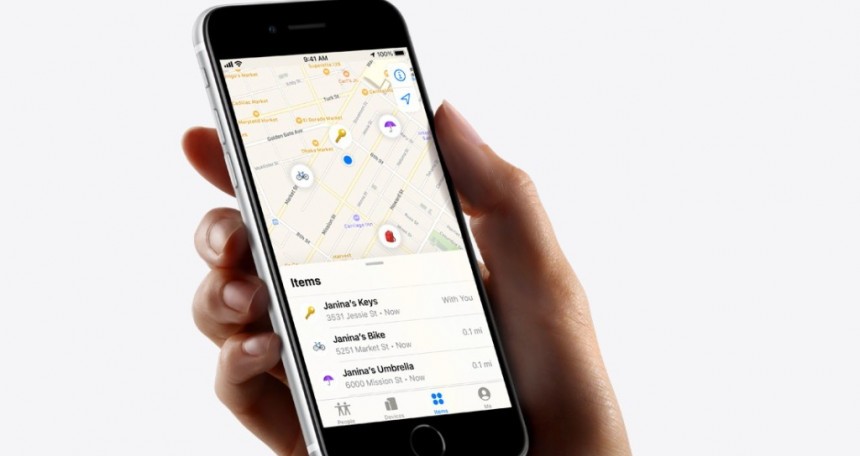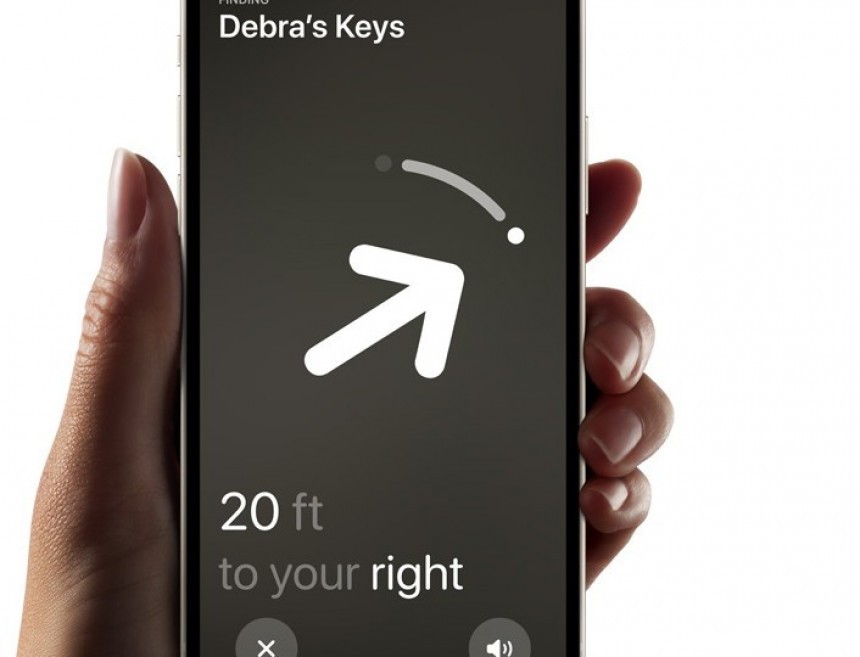Apple launched the AirTag with a very simple goal in mind. The pill-shaped device is supposed to let owners track their belongings, be they wallets or car keys, using their iPhones, as the AirTags uses nearby Apple smartphones and the Find My network to communicate with the master device.
When an iPhone is in proximity, the AirTag can send its location to the owner, so finding the tracker is easy and convenient.
The AirTag has rapidly become a must-have device for car, motorcycle, and bike owners, as planting the tracker in the vehicle could help find its location if it gets stolen. I've already covered many successful recoveries powered by AirTags, as police were able to find the stolen vehicles using location information shared by the Apple device.
Unfortunately, it was a matter of time until people with nefarious ideas discovered the ugly side of the AirTag. Stalking cases have become worryingly common, as criminals plant the device where victims can't see the AirTag, eventually monitoring their location.
Apple equipped the AirTag with anti-stalking protections, alerting nearby iPhones when moving with them. Researchers at Northeastern University tried to determine how this anti-stalking system works, so they tested the AirTag with unknown iPhones to see how fast it sends a notification.
The results offer good and bad news. On one occasion, the AirTag offered a stalking warning in just 30 minutes, but the notification took nine hours to kick in on another. However, the researchers discovered some interesting trends, as the AirTag alerted of possible stalking more quickly at night or when the iPhone was closer to the device. Furthermore, it looks like the AirTag also considers location details when issuing a warning, as the alerts are generated more quickly when the user is in a location they frequent, such as home or work.
Apple has focused on improving stalking protections, but the nine-hour delay determined in one test proves the company must do better.
And then, there's the horrible side of the AirTag. People can disable the safety systems installed on the AirTag to make it an even more advanced stalking device – for example, engineers have discovered that you can disable the speaker integrated into the AirTag, so it would no longer make a sound when you locate a tracker in proximity and want to determine its location.
Apple is already working on the second-generation AirTag, but recent information from people close to the matter suggests the company needs more time to complete the work on the device. The new AirTag is now expected in 2024 or 2025, as Apple has more things to deal with, including a massive class-action lawsuit that accuses the company of building a device that anyone can misuse for things like stalking.
The researchers emphasize that Apple's AirTag has become a double-edged sword. While it can help people track their belongings, it also allows for nefarious purposes that could lead to grave implications.
The world seems unprepared for a device like the AirTag, as the police themselves have already hit a roadblock when trying to recover stolen belongings.
Not long ago, a bike owner whose vehicle got stolen managed to track it down to an apartment building thanks to information provided by the AirTag. He called the police and provided the officers with full location details, hoping they could recover the bike. An officer went to the indicated location but couldn't locate the bike, eventually telling the owner they couldn't do anything if the vehicle were not in plain sight.
The current laws do not allow the police to search private property indicated by the AirTag without a warrant. Occasionally, investigators request a warrant and manage to recover the stolen goods, but the lengthy process gives criminals more time to run away or disable the AirTag (which is currently possible only by removing the battery, as the device does not come with a power off button).
However, police still believe installing an AirTag in your car is a brilliant idea, as it could help provide data that no other device, except for a GPS tracker, can offer. Law enforcement advises people to call 911 the moment they notice the vehicle is missing, as the faster the search begins, the bigger the chances for the thief to be close. Furthermore, the criminal wouldn't have the time to disable the AirTag with the police on their tail – the anti-stalking protection could also have a double role; while it helps protect against stalking, it also alerts thieves that the goods they just stole are tracked with an AirTag.
If you are looking for some ideas on where to hide an AirTag in your car, I recently created a list of the five best places where the tracker could be nearly impossible to spot, especially by someone who always has to look in the mirror for the police.
The AirTag has rapidly become a must-have device for car, motorcycle, and bike owners, as planting the tracker in the vehicle could help find its location if it gets stolen. I've already covered many successful recoveries powered by AirTags, as police were able to find the stolen vehicles using location information shared by the Apple device.
Unfortunately, it was a matter of time until people with nefarious ideas discovered the ugly side of the AirTag. Stalking cases have become worryingly common, as criminals plant the device where victims can't see the AirTag, eventually monitoring their location.
Apple equipped the AirTag with anti-stalking protections, alerting nearby iPhones when moving with them. Researchers at Northeastern University tried to determine how this anti-stalking system works, so they tested the AirTag with unknown iPhones to see how fast it sends a notification.
Apple has focused on improving stalking protections, but the nine-hour delay determined in one test proves the company must do better.
And then, there's the horrible side of the AirTag. People can disable the safety systems installed on the AirTag to make it an even more advanced stalking device – for example, engineers have discovered that you can disable the speaker integrated into the AirTag, so it would no longer make a sound when you locate a tracker in proximity and want to determine its location.
Apple is already working on the second-generation AirTag, but recent information from people close to the matter suggests the company needs more time to complete the work on the device. The new AirTag is now expected in 2024 or 2025, as Apple has more things to deal with, including a massive class-action lawsuit that accuses the company of building a device that anyone can misuse for things like stalking.
The world seems unprepared for a device like the AirTag, as the police themselves have already hit a roadblock when trying to recover stolen belongings.
Not long ago, a bike owner whose vehicle got stolen managed to track it down to an apartment building thanks to information provided by the AirTag. He called the police and provided the officers with full location details, hoping they could recover the bike. An officer went to the indicated location but couldn't locate the bike, eventually telling the owner they couldn't do anything if the vehicle were not in plain sight.
The current laws do not allow the police to search private property indicated by the AirTag without a warrant. Occasionally, investigators request a warrant and manage to recover the stolen goods, but the lengthy process gives criminals more time to run away or disable the AirTag (which is currently possible only by removing the battery, as the device does not come with a power off button).
If you are looking for some ideas on where to hide an AirTag in your car, I recently created a list of the five best places where the tracker could be nearly impossible to spot, especially by someone who always has to look in the mirror for the police.









